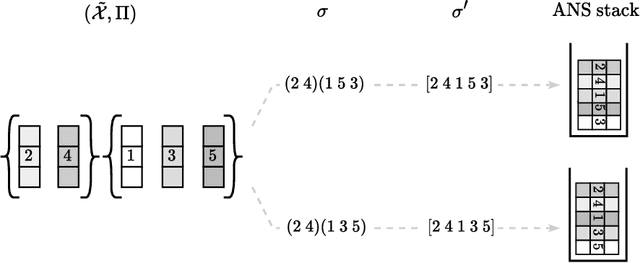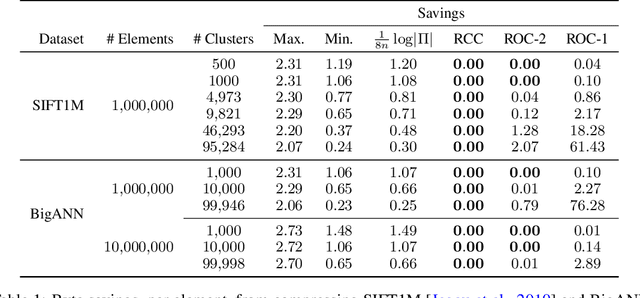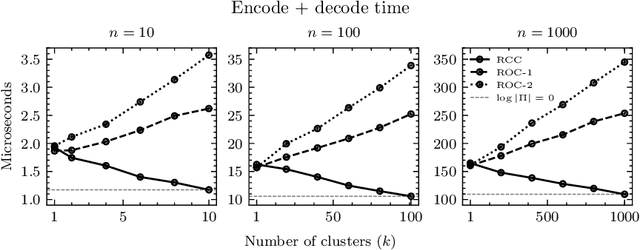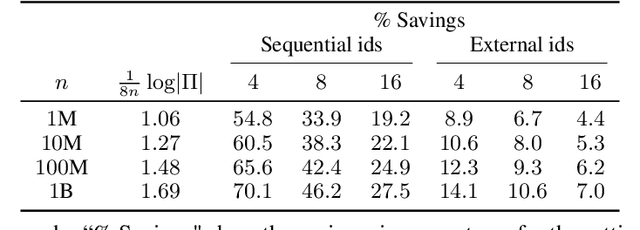Random Cycle Coding: Lossless Compression of Cluster Assignments via Bits-Back Coding
Paper and Code
Nov 30, 2024



We present an optimal method for encoding cluster assignments of arbitrary data sets. Our method, Random Cycle Coding (RCC), encodes data sequentially and sends assignment information as cycles of the permutation defined by the order of encoded elements. RCC does not require any training and its worst-case complexity scales quasi-linearly with the size of the largest cluster. We characterize the achievable bit rates as a function of cluster sizes and number of elements, showing RCC consistently outperforms previous methods while requiring less compute and memory resources. Experiments show RCC can save up to 2 bytes per element when applied to vector databases, and removes the need for assigning integer ids to identify vectors, translating to savings of up to 70% in vector database systems for similarity search applications.
 Add to Chrome
Add to Chrome Add to Firefox
Add to Firefox Add to Edge
Add to Edge